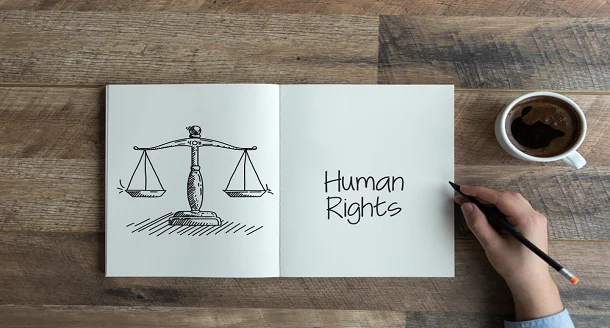
What are Human Rights?
Human rights are an individual’s rights and freedoms, which form the basis for the relationship between the government and the individual.
Human rights, EU and public law were brought into English law under the Human Rights Act of 1998. Any breaches of the European Convention on Human Rights can be dealt with in UK courts. However, cases may still be taken to Strasbourg in France as a last resort.=
Several parts make up a dissertation sample on Human Rights law. An introduction to the subject, a brief history of the topic, and a conclusion. You can also include a discussion of the various Articles of the UDHR, including Articles 2, 17 and 18.
Article 2 of the UDHR:
Article 2 of the UDHR is one of the most important pieces of international human rights law. The article aims to ensure that everyone has the right to participate in the cultural life of a community. The UDHR is a long-standing document that protects human rights. In the modern world, however, it is deemed morally irrelevant.
Article 17 of the UDHR:
Article 17 of the Universal Declaration of Human Rights (UDHR) establishes that every individual or group has specific duties and responsibilities towards the community. It identifies that no one has the right to destroy another’s rights and that actions that undermine the rights of one’s fellow citizens are not acceptable. The UDHR also contains an interpretive command that states, “A state shall not engage in any activity which seeks to deprive a person of his or her rights or freedoms”.
Article 18 of the UDHR:
Human rights are norms meant to protect people from harm and abuses. For example, the right to freedom of religion, the right to a fair trial when charged with a crime, the right not to be tortured, and the right to an education are all fundamental human rights.
Article 19 of the UDHR:
The UDHR has been one of the cornerstones of international human rights law. It has brought human rights to the forefront and given them status and respect. The Pope even called it the “highest expression of human conscience.” Despite its lack of binding force, the UDHR has served as the springboard for many HR laws and strategies. And because it is non-binding, it provides flexibility and room for new interpretations.
The UDHR is a unique instrument that is both an instrument for HR protection and the object of a lot of debate. However, the UDHR is not a perfect document, and there have been many instances of violations around the world.
Article 21 of the UDHR:
Article 21 of the UDHR lays out the limits the court has the authority to apply to human rights violations. This provision protects individuals in various situations, from the protection of children from torture to the detention of witnesses. Despite the limitations, the condition has shown to be capable of ensuring the protection of human rights.
Article 23 of the UDHR:
Article 23 of the UDHR outlines a person’s rights, and when it is violated, the consequences are severe. This article covers the rights of a person, including those who are minors. It also covers how an individual can get an education. Besides fundamental rights, there are others. For example, the right to a decent life includes food, shelter, and wages.
Article 24 of the UDHR:
Article 24 of the UDHR states that every person has the right to an adequate education. This right is intended to make a person literate and able to participate in political and social life. It further states that education should promote the full development of the human personality. It should also promote peace and understanding between all nations and groups. Finally, it should advance the work of the United Nations.
Article 25 of the UDHR:
The Universal Declaration of Human Rights (UDHR) is a non-binding document adopted by the United Nations General Assembly in 1948. Its purpose is to promote human rights and to hold states accountable for their violations. It asserts that human rights are the foundation for freedom and justice. This document represents the first attempt to establish international legal limits on the behaviour of states. It is based on the concept of rights-duty duality.
Article 26 of the UDHR:
Article 26 of the UDHR is an essential piece of human rights law and is a significant concern for the human rights community. It is a fundamental part of the UDHR and is still very relevant. For example, it protects the right to education and is an essential component of the UDHR.
Article 37 of the UDHR:
In a dissertation sample about Human Rights law, you may discuss the challenges the UDHR faces and how these challenges can be overcome. The UDHR is a treaty that sets standards for human rights and is based on two fundamental challenges. These are the right to privacy and the right to be free from persecution. These two challenges are echoed throughout the UDHR and are the core challenges it attempts to resolve.
Author Bio:
Carmen Troy is a research-based content writer for, Penophile, a globally Proofreading and editing service provider. And Research Prospect, The best academic writing services company worldwide. They provide many Academic writing services, dissertation writing services, etc. Mr Carmen holds a PhD degree in mass communication. He loves to express his views on various issues, including education, technology, and more.

